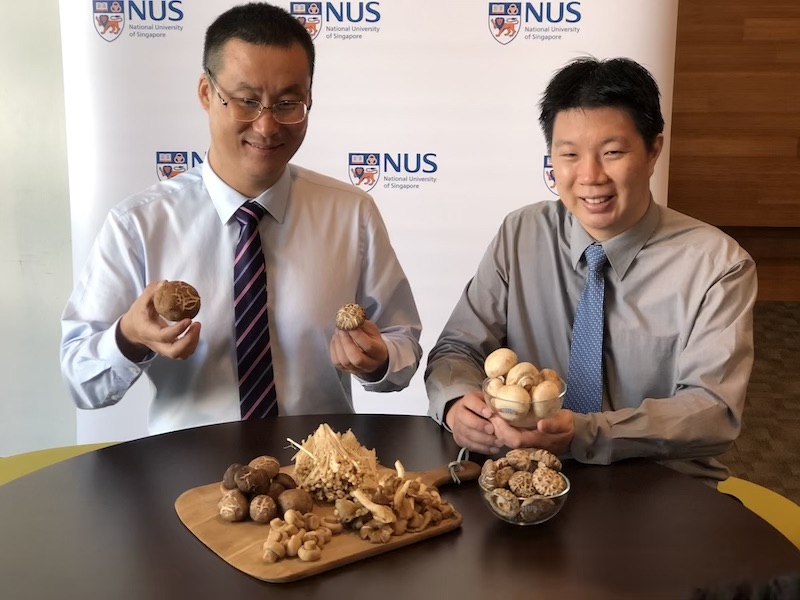Time to eat mushrooms
Mushrooms are said to be beneficial in possibly reducing the risk of cognitive decline.
BY: Eleanor Yap
Hail the mushroom as it is now said to possibly reduce the risk of cognitive decline. A team from the Department of Psychological Medicine and the Department of Biochemistry at the Yong Loo Lin School of Medicine at the National University of Singapore (NUS) has found that seniors who consume more than two standard portions of mushrooms weekly may have a 50-percent reduction of having mild cognitive impairment (MCI).
A portion was defined as three quarters of a cup of cooked mushrooms with an average weight of around 150 grams, while two portions would be equivalent to approximately half a plate. Assistant Professor Feng Lei, who is from the NUS Department of Psychological Medicine and the lead author of the study, said that one portion of mushrooms alone can possibly reduce cognitive impairment by around 20 percent. Even one small portion of mushrooms a week may still be beneficial to reduce chances of MCI. Six commonly consumed mushrooms in the study include golden, oyster, shiitake and white button mushrooms, as well as dried and canned mushrooms.
Dr Irwin Cheah, senior research fellow at the NUS Department of Biochemistry, explained that mushrooms contain high levels of a unique natural compound called ergothioneine (ET) as mushrooms synthesise the compound. They beat out other foods that contain this compound which include red beans and soy beans, and even some meats like liver. “Mushrooms have higher levels compared to the other foods – 100-fold higher – and it doesn’t matter too much about the type of mushroom,” said Dr Cheah.
He added ET acts as an antioxidant and anti-inflammatory agent, and there are a lot of studies that show it can be protective for the brain. It can protect against beta amyloid, a protein implicated in dementia.
The six-year study at NUS which was conducted from 2011 to 2017 collected data from more than 600 Chinese seniors over the age of 60 living in Singapore and the results were published online in the “Journal of Alzheimer’s Disease” this year. Of the 600 seniors, around 90 had MCI, while the rest were normal. MCI is typically viewed as the stage between the cognitive decline of normal ageing and the more serious decline of dementia. Seniors afflicted with MCI often display some form of memory loss or forgetfulness, and may also show deficit on other cognitive function such as language, attention and visuospatial abilities. However, the changes can be subtle as they do not experience disabling cognitive deficits that affect everyday life activities, which is characteristic of Alzheimer’s and other forms of dementia.
Asst Prof Feng added: “People with MCI are still able to carry out their normal daily activities. So, what we had to determine in this study is whether these seniors had poorer performance on standard neuropsychologist tests than other people of the same age and education background.” The researchers in the study conducted extensive interviews and tests with the seniors as well as a neuropsychological assessment. It is not just those without MCI that may benefit from eating mushrooms, but those who have MCI may also reduce the progression of their impairment. However, Asst Prof Feng said, more studies still need to be done.
Asst Feng and Dr Cheah shared that they will be conducting a one-year clinical trial to get further proof that ET is the beneficial compound, and are looking into other studies dealing with medical foods or supplements that can benefit those with dementia.
So before rushing out and eating lots of mushrooms, Dr Cheah warned: “Mushrooms does have benefits but they need to be eaten in moderation and you need a balanced diet nonetheless.”



0 Comments